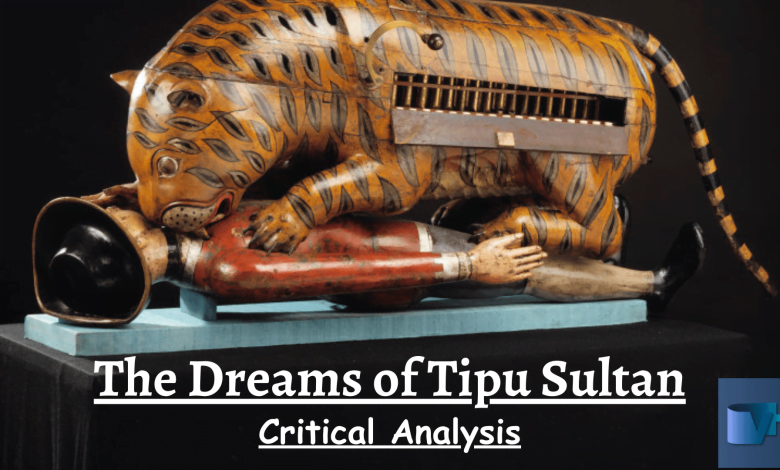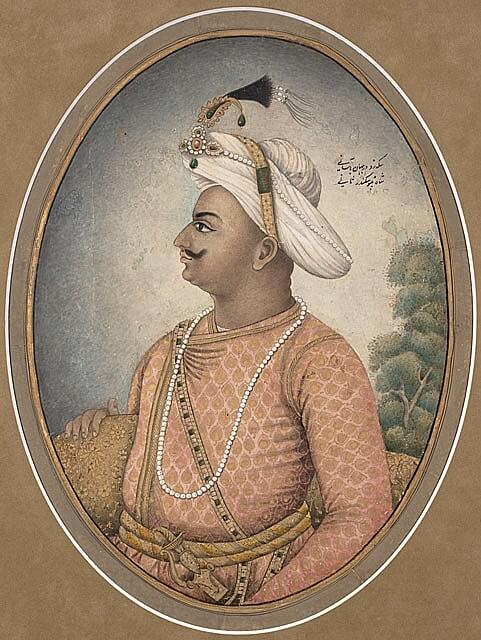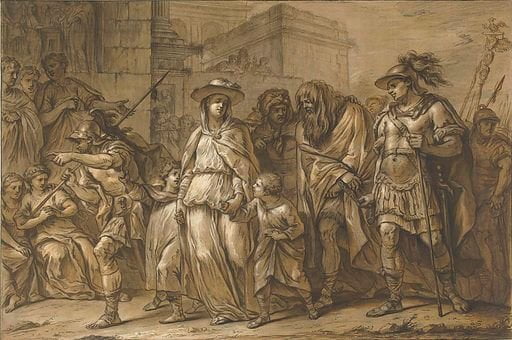
“The Dreams of Tipu Sultan” by Girish Karnad is a powerful and evocative play that delves into the life, dreams, and resistance of Tipu Sultan, the valiant 18th-century ruler of the Kingdom of Mysore in India. The Dreams of Tipu Sultan Critical Analysis explored the themes and political references portrayed in the play.
Set against the backdrop of British colonialism, the play weaves a compelling narrative that explores themes of resistance, identity, cultural heritage, and the consequences of political power.
“The Dreams of Tipu Sultan” serves as a testament to the resilience, courage, and vision of Tipu Sultan and his fight against colonialism. It invites the audience to reflect on the enduring struggles for freedom, the power of dreams, and the complexities of identity in the face of oppressive forces.

The Dreams of Tipu Sultan Critical Analysis
From the very beginning, the play immerses the audience in the historical and political context of Tipu Sultan’s era, where the British East India Company sought to expand its dominance over Indian territories. It portrays the intricate web of relationships, alliances, and conflicts that shaped the political landscape of the time, highlighting the ambitions and struggles of various characters, including Tipu Sultan himself, his father Hyder Ali, and British General Harris.
At its core, the play critically analyzes the concept of resistance against colonialism. Tipu Sultan emerges as a resolute and visionary leader who is deeply committed to protecting the sovereignty and cultural heritage of his kingdom. His dreams, which serve as a driving force throughout the narrative, symbolize his aspirations for a united India free from foreign rule. The play showcases his unwavering determination and the sacrifices made by him and his followers in their fight against the British forces.
The Dreams of Tipu Sultan critical analysis also delves into the complexity of identity. Tipu Sultan’s Muslim heritage and his role as a ruler present him with challenges in reconciling his personal identity with his responsibilities as a leader. The play explores his struggles in balancing his faith, his cultural background, and the expectations placed upon him.
Furthermore, the play emphasizes the preservation of cultural heritage. Tipu Sultan is portrayed as a patron of the arts, literature, and language, striving to protect the rich cultural traditions and values of his kingdom. It raises the importance of safeguarding cultural heritage in the face of colonial encroachment and celebrates the diverse cultural tapestry of India.
Throughout the narrative, the play also grapples with the consequences of political power. It delves into the weight of leadership and the far-reaching impact of Tipu Sultan’s decisions on his family, allies, and the people of his kingdom. It explores the complexities and personal sacrifices that come with wielding political authority.
“The Dreams of Tipu Sultan” offers a nuanced portrayal of historical events, interweaving factual details with imaginative storytelling. It challenges dominant narratives by presenting Tipu Sultan as a multi-dimensional character, highlighting his resistance against colonialism and celebrating his contributions to the anti-colonial struggle. The play engages the audience with its exploration of dreams, aspirations, and the indomitable spirit of those who fight for freedom.
In summary, “The Dreams of Tipu Sultan” is a captivating play that captures the essence of a pivotal moment in Indian history. It invites the audience to reflect on the themes of resistance, identity, cultural preservation, and the consequences of political power. Through its vivid characters, evocative dialogues, and thought-provoking narrative, the play resonates with audiences, reminding us of the enduring struggle for freedom and the power of dreams in shaping the destiny of a nation.
The Reluctant Fundamentalists by Mohsin Hamid Summary and Analysis
The Dreams of Tipu Sultan Themes and Analysis

The Dreams of Tipu Sultan” by Girish Karnad explores several key themes that resonate throughout the play. These themes include resistance against colonialism, the power of dreams and aspirations, the complexity of identity, the preservation of cultural heritage, and the consequences of political power. Let’s delve into each theme and provide textual references where possible.
Modernity in the Dreams of Tipu Sultan
The concept of modernity in “The Dreams of Tipu Sultan” is portrayed through the clash between traditional values and the forces of colonialism and industrialization. The play explores the impact of modernity on traditional societies and raises questions about the complexities that arise when different worldviews collide.
The British colonial forces represent modernity, with their advanced technology, capitalist ambitions, and imposition of Western values. Tipu Sultan and his kingdom symbolize traditional values deeply rooted in their own cultural heritage. The play highlights the resistance of Tipu Sultan against the encroachment of British influence.
However, the play avoids a simplistic dichotomy, acknowledging the complexities within each side. Tipu Sultan, while upholding tradition, also shows an interest in technological advancements. The British characters, while representing modernity, are driven by personal ambitions and exploitative practices.
Resistance against Colonialism:
One of the central themes of the play is the resistance of Tipu Sultan and his people against British colonialism. Tipu Sultan is depicted as a valiant leader who fiercely defends his kingdom and its sovereignty. The play portrays the struggles, battles, and sacrifices made by Tipu Sultan and his followers in their fight against British forces.
Textual reference: “We shall not bow down to the foreigners! We shall not surrender our land and our pride to them! We will fight till the last breath to protect our people and our culture!” (Act 2)
The Power of Dreams and Aspirations:
Dreams play a significant role in the play, symbolizing the hopes, ambitions, and visions of Tipu Sultan. His dreams of a united India, free from foreign rule, inspire and motivate him in his resistance against colonial forces. The dreams also serve as a rallying cry for his followers and ignite a sense of collective purpose.
Textual reference: “In my dreams, I see a united India, free from the chains of foreign domination. I see a nation where all communities live in harmony, and our culture thrives. These dreams fuel my determination to fight for our freedom.” (Act 1)
Here’s the most Basic Islamic Concept of State and Sovereignty
The complexity of Identity:
The play explores the complexity of identity, particularly through Tipu Sultan’s Muslim heritage and his role as a ruler. It delves into the challenges he faces in reconciling his identity with his responsibilities as a leader and the expectations of his people.
Textual reference: “I am a Muslim, and my faith is dear to me. But I am also a king, responsible for the welfare of all my subjects, regardless of their religion. Balancing these identities is not an easy task.” (Act 3)
Preservation of Cultural Heritage:
The play emphasizes the importance of preserving cultural heritage in the face of colonial encroachment. Tipu Sultan is portrayed as a patron of the arts, literature, and language, striving to protect the cultural traditions and values of his kingdom.
Textual reference: “Our language, our art, our traditions—they define who we are. We must guard them with the utmost care, for they are the essence of our identity.” (Act 2)
Who are the Taliban in Afghanistan? (25 years fighting for Afghanistan)
Consequences of Political Power:
The play explores the consequences of political power and the weight of leadership on individuals and their relationships. It examines the decisions made by Tipu Sultan and their impact on his family, allies, and the people of his kingdom.
Textual reference: “The burden of power is heavy. Every decision I make affects the lives of my people, my family, and myself. I must bear this responsibility with utmost care.” (Act 3)
Dreams of Tipu Sultan as a Historical Play and Nationalism:
The play captures the historical context of Tipu Sultan’s time, when the British East India Company sought to expand its dominion over Indian territories. It explores the themes of nationalism and the resistance against foreign rule, reflecting the broader struggle for independence that emerged across India.
Textual reference: “Our land has been a victim of foreign aggression for far too long. It is time to rise as a nation, united against those who seek to oppress us. We must reclaim our freedom!” (Act 1)
Loss and Sacrifice:
The theme of loss and sacrifice permeates the play as Tipu Sultan and his followers face the realities of war and colonial aggression. The play depicts the personal losses endured by individuals caught amid conflict, emphasizing the sacrifices made for the larger cause of freedom.
Textual reference: “We mourn the lives lost in this battle, the sacrifices made by our brothers and sisters. But let their deaths not be in vain. Let their sacrifice fuel our determination to continue the fight!” (Act 3)
Manipulation and Betrayal:
The play explores the complexities of political alliances and the presence of betrayal within power dynamics. It sheds light on the machinations and manipulations employed by both the British and those within Tipu Sultan’s court, highlighting the challenges faced in navigating treacherous political landscapes.
Textual reference: “They whisper behind closed doors, plotting their own agendas while pretending loyalty to our cause. We must be vigilant against those who seek to undermine us from within.” (Act 2)
Historical Revisionism and Representation:
The play raises questions about the construction of historical narratives and the manipulation of history by the colonizers. It challenges the dominant narratives that often paint Tipu Sultan as a tyrant, offering an alternative perspective that celebrates his resistance and emphasizes his contributions to the anti-colonial struggle.
Textual reference: “They write our history with their own pens, twisting the truth to suit their agendas. But we shall reclaim our stories, rewriting the narrative from our perspective.” (Act 3)
Political History Of Pakistan(In A Perfect Chronology From 1947)
Legacy and Inspiration:
The play explores the enduring legacy of Tipu Sultan and his impact on subsequent generations. It emphasizes the inspiration he provides to future leaders and the enduring spirit of resistance against oppression.
Textual reference: “Tipu Sultan’s dreams live on in our hearts. His courage, his vision, they continue to inspire us. We carry the torch of freedom, knowing that the fight for justice is a continuous struggle.” (Act 3)
These themes intertwine throughout the play, creating a layered and nuanced exploration of Tipu Sultan’s life and the historical context in which he fought against colonial forces. The text references provided offer glimpses into the dialogues and speeches within the play that reflect these themes.
These themes collectively weave a rich tapestry that engages with historical, political, and cultural dimensions. “The Dreams of Tipu Sultan” invites the audience to reflect on the struggles against colonialism, the power of collective action, and the importance of preserving cultural heritage. Through its exploration of Tipu Sultan’s dreams and aspirations, the play inspires a sense of resilience and hope, resonating with audiences as they contemplate the complexities of history and the ongoing quest for freedom



